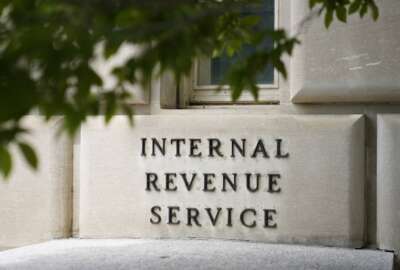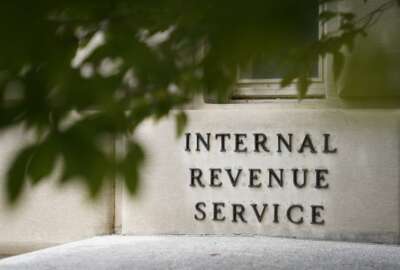IRS puts 125,000 high-income individuals not filing tax returns on notice, to recoup millions owed
The IRS is reaching out to high-income individuals who haven’t filed a federal tax return over the past seven years.
The Internal Revenue Service is reaching out to high-income individuals who haven’t filed a federal tax return in recent years, with the goal of recouping millions of dollars in unpaid taxes.
The IRS is mailing notices to 125,000 high-income individuals who haven’t filed a federal income tax return since 2017. The agency will start sending those notices this week.
IRS Commissioner Danny Werfel told reporters on Thursday that notices are going out to 25,000 individuals with more than $1 million in income, and 100,000 notices to people with incomes between $400,000 and $1 million between tax years 2017 and 2021.
The IRS, by tapping into third-party data sources, believes these 125,000 individuals account for $100 billion in financial activity.
“If someone hasn’t filed a tax return, this is the time to make it right,” Werfel said. “For those who owe, the risk will just grow over time, as will the interest and failure-to-file penalties will also accrue.”
Werfel said the IRS non-filer program has only run “sporadically” since 2016, because of “severe budget cuts and staff limitations.”
“The program pullback didn’t happen because of lack of information. The IRS knows who these non-filers are,” Werfel said. “The IRS has known these people are out there, and they involve some very prosperous households. But we didn’t have the staffing or the resources to pursue these cases, which takes time and staff hours.”
More than 160 million taxpayers file federal tax returns each year and voluntarily pay what they owe.
“When people don’t file a tax return they’re required to, it’s not fair to those hard-working taxpayers who responsibly do their civic duty under the laws of our nation. And when people don’t file their taxes, they need to know there’s a consequence,” Werfel said.
The IRS, by tapping into about $60 billion of multi-year modernization funds in the Inflation Reduction Act, is able to revitalize the nonfiler program.
The agency will start sending out 20,000 to 40,000 letters each week, starting with the highest income categories.
“With the help of Inflation Reduction Act funding, the IRS now has the capacity to do this core tax administration work,” Werfel said. “This isn’t a small group of people we’re talking about.”
The IRS is sending out these notices, based on third-party information, such as W-2 and 1099 forms, which indicate that individuals received a certain level of income, but didn’t file a tax return to report that income.
Werfel said the IRS expects “hundreds of millions of dollars of unpaid taxes are involved in these cases.”
But it remains unclear how much funding the agency expects to recoup, because some individuals the IRS is reaching out to may be eligible for tax credits and deductions.
In some cases, they may be owed a tax refund.
“We don’t know what someone’s personal tax situation is,” Werfel said. “What we don’t know yet, and what we will find out is how much of that is taxable income.”
The IRS estimates that each year, about a million individuals who would have received a tax refund do not file a federal tax return.
Werfel said nonfilers who are owed a tax refund are typically lower-income individuals, and that the IRS will take steps to reach out to them.
IRS has hired 5,000-7,000 customer service representatives and account managers under the Inflation Reduction Act. Werfel said those frontline employees will field questions and assist people who receive a non-filer notice in the mail.
“If you boil this down, the new IRS funding means that law-abiding taxpayers are going to get better service and more help both this tax filing season and beyond. But for those that are not complying with tax laws, the funding means the IRS will be increasing our compliance work,” Werfel said.
Werfel added the IRS will send several notices to nonfilers before taking additional steps.
“It’s a series of civil steps where we work with the taxpayer to get things right, and the criminal steps are only at the last resort, at the very end of that process,” he said.
The IRS announced last October that its efforts to crack down on wealthy tax cheats is paying off. The agency is in the process of recovering $122 million from 100 such cases.
The IRS says that’s just the beginning, and that it has assigned employees to tackle 1,600 similar cases. IRS enforcement is prioritizing cases that involve millionaires who owe at least $250,000 in taxes.
Werfel said that audit rates for high-income earners have “fallen sharply over the last decade, and they are at historic lows.”
Meanwhile, the IRS is asking Congress for annual appropriations to sustain its modernization budget. The current IRS annual budget is $12.3 billion, and the agency is asking for $14.1 billion for the rest of fiscal 2024.
“Our base budget is still lower than it needs to be. And therefore, we have to borrow from the modernization funding to cover our day-to-day operations,” Werfel said.
“I want to get to a place where the staff that we have at the IRS — which is necessary to run the system, to answer the phones, to be in our walk-in centers, to open the paper mail, to scan it — all of that, I want that all to be in our in our base budget, so that we can focus on modernization,” he added.
Copyright © 2024 Federal News Network. All rights reserved. This website is not intended for users located within the European Economic Area.
Jory Heckman is a reporter at Federal News Network covering U.S. Postal Service, IRS, big data and technology issues.
Follow @jheckmanWFED






